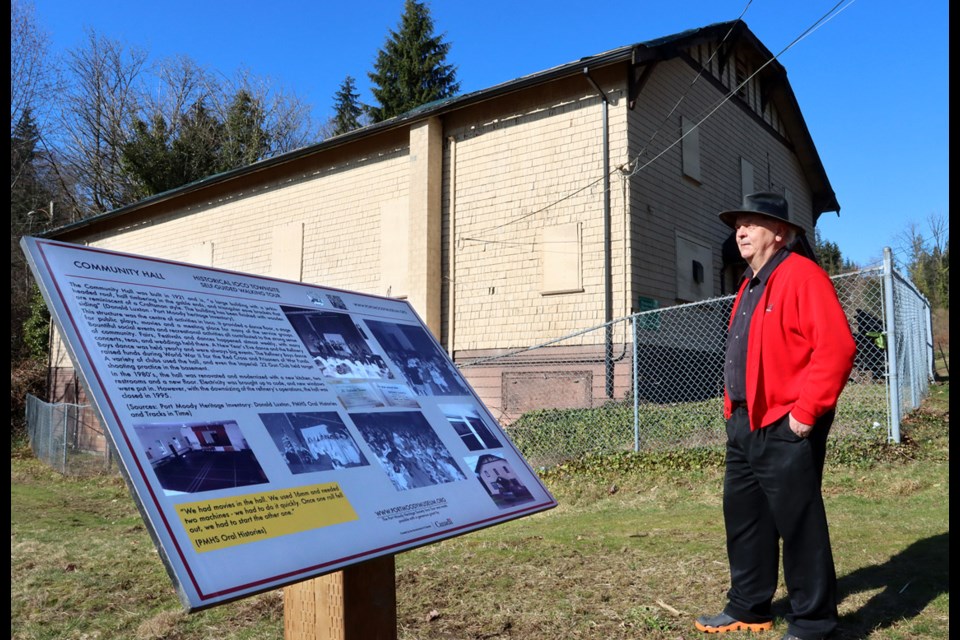A new self-guided walking tour of the old 23-acre Ioco townsite that launches Sunday (Feb. 27) will give visitors a chance to stroll their way through history.
But the director of the Port Moody Station Museum hopes it will also reinvigorate the urgency to save the former company town built for workers at the nearby Imperial Oil refinery.
Jim Millar says time is running out for the remaining wooden buildings and houses that were once part of a bustling little hamlet at the end of Ioco Road on the north shore of Burrard Inlet.
The walking tour goes past many of those buildings, telling their stories and of life in the community on 19 sign boards that were installed by members of the Port Moody Men’s Shed Society with financial assistance from Heritage Canada and Imperial Oil.
Millar and museum staffers Marcus Fahrner and Brianne Egeto did the research for the sign boards, mining the city’s archives as well as oral histories about life at the townsite that had been gathered over the years.
Millar said the recent acquisition by the museum of a memoir by a WWI veteran who had lived at the townsite briefly before life there got too hard for him and he decided to enlist, added some depth.
“It wasn’t all that pleasant,” said Millar of the picture painted by the veteran’s words.
Until 1917 there was no road connection; the only way in and out was by the single rail line or walking through the dense bush, although one winter the inlet froze so there was a short cut to Port Moody.
Many of the homes and buildings had no heating, running water or sewage systems.
Because of the townsite’s isolation, provisions had to be acquired at the company store, meaning most of the paycheques workers earned at the refinery went straight back to their employer.
Still, Millar said, it was a tight-knit community that looked out for one another and organized gatherings like an annual picnic.
“You depended on your neighbours,” Millar said. “The kids couldn’t get away with anything.”
But as Port Moody grew, the road connection improved, more workers had cars and the need for a company town to keep employees close diminished. By the 1960s, several houses were vacant. Some were moved. Others started to fall into disrepair.
Today, only a few of the remaining homes are still occupied; most are gone or behind fences to discourage vandals or squatters. The old Ioco Groceteria has been boarded up for years.
Imperial Oil, as well as a developer that now owns part of the land where the townsite is located and is looking to develop its property have made efforts to preserve what’s left, making some repairs and heating interiors to prevent mould and rot from setting in. But Millar said it hasn’t been enough.
The townsite’s isolated location puts it out of sight, out of mind in Metro Vancouver’s busy environs, and while Port Moody designated it a heritage conservation area to afford it some protection and keep it accessible, Millar said there seems to be little political will or capital to do much more.
So perhaps giving people a reason to make the drive out to visit the townsite and walk a kilometre or so in the former residents’ shoes as they read of its history and some of its characters will be the spark that saves it, Millar said.
Otherwise, “it could easily slip away and nobody would be the wiser.”
• The Ioco townsite walking tours and displays will be officially unveiled on Sunday, from 1 to 3 p.m., at the corner of Ioco Road and 1st Avenue. Refreshments will be available by donation.



